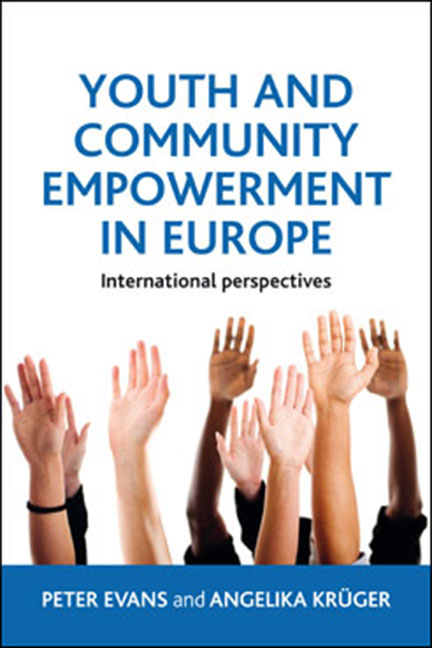Book contents
- Frontmatter
- Dedication
- Contents
- List of figures and tables
- List of abbreviations
- Acknowledgements
- Preface
- Background to the Youth Empowerment Partnership Programme
- one Introduction: the theoretical context of the YEPP approach
- two YEPP I: implementation
- three YEPP I: key changes in YEPP Local Programme Sites
- four YEPP I: meeting the goals
- five YEPP II: learning from YEPP I
- six YEPP II: portraits and overall programme outcomes
- seven YEPP I and II: conclusions and policy implications
- Epilogue: The future of YEPP
- References
- Index
seven - YEPP I and II: conclusions and policy implications
Published online by Cambridge University Press: 07 September 2022
- Frontmatter
- Dedication
- Contents
- List of figures and tables
- List of abbreviations
- Acknowledgements
- Preface
- Background to the Youth Empowerment Partnership Programme
- one Introduction: the theoretical context of the YEPP approach
- two YEPP I: implementation
- three YEPP I: key changes in YEPP Local Programme Sites
- four YEPP I: meeting the goals
- five YEPP II: learning from YEPP I
- six YEPP II: portraits and overall programme outcomes
- seven YEPP I and II: conclusions and policy implications
- Epilogue: The future of YEPP
- References
- Index
Summary
Conclusions
Youth and community empowerment
Based on the results of the evaluations carried out on both YEPP I and II, the principal conclusion to be drawn is that young people participate actively in creating sustainable change if opportunities for civic and community engagement are open to them.
Within YEPP, young people have demonstrated that they are ready for civic and community engagement and for becoming agents of change when they get the opportunity to participate in decision-making processes and when they get the opportunity to further develop their capacities and gain skills to make their voices heard. Within YEPP, young people have seized the opportunity to engage in dialogue with local, regional and European decision makers, despite their broad discontent and distrust in politics. However, as soon as politicians and administrators become serious about listening to the young people and supportive with regard to their projects, a fruitful dialogue has developed. The YEPP experience has shown that local politicians are open to engaging in dialogue with young people at local and transnational levels and to having an exchange about policies and pathways of collaboration.
Although, over the long term, it was difficult to reach and involve the most marginalised young people facing serious educational and social challenges, those who could be reached have grown gradually into active citizenship when trusted and supported, and have benefited greatly from incremental participation.
The YEPP experience has shown that ownership of local activities by young people leads to a wealth of initiatives and projects both with and for their peers and communities that can be turned into permanent structures shaping the future of the community. Examples of such initiatives that have become formalised in structures such as youth councils, youth parliaments, ‘little’ parliaments involving primary school children, youth television and radio channels, and youth banks.
The YEPP experience has shown that local stakeholders, including young people, seize the opportunity to engage in a complex, systematic and continuous strategic planning, implementation and evaluation process in order to bring about change in their communities if the need for change is strongly perceived and the motivation is high to engage in bringing it about.
Participatory planning and evaluation have brought fragmented local actors together and created a framework for sustainable cooperation.
- Type
- Chapter
- Information
- Youth and Community Empowerment in EuropeInternational Perspectives, pp. 161 - 176Publisher: Bristol University PressPrint publication year: 2012



